Online Class: Virus Removal and Protection

no certificate
with CEU Certificate*
-
11Lessons
-
29Exams &
Assignments -
626Students
have taken this course -
6Hours
average time -
0.6CEUs
Course Description
In a world where our personal lives, careers, and daily routines are intertwined with technology, understanding internet security is no longer optional-it's essential. Every time you log in, click a link, or download a file, you open a door into your digital world. But how secure is that door? If you've ever felt uncertain about how to protect yourself online, this course is your answer.
Picture this: You're working on an important project, sharing precious family memories online, or managing sensitive financial information. Suddenly, everything comes to a halt because of a virus, malware, or a cyberattack. It's a nightmare most of us have experienced-or dread. Yet, despite these risks, many of us leave our digital lives unprotected, simply because we don't fully understand how threats work or how to prevent them.
That's where this course comes in. It's not just another online class; it's a game-changer. Designed with real people in mind, it breaks down the intimidating world of internet security into clear, actionable steps. You'll learn what viruses, spyware, and malware truly are-beyond the buzzwords-and how they affect your devices and personal information.
But this isn't just about identifying threats; it's about mastering the tools and strategies to keep them at bay. From safeguarding your data to securing your family's online presence, you'll gain the confidence to take control of your digital life. Imagine knowing exactly how to detect, remove, and prevent infections before they become disasters. Picture the peace of mind that comes with understanding how to safely navigate the web, no matter what challenges arise.
What sets this course apart is its emphasis on practical, real-world solutions. You'll discover how to implement top-tier antivirus software, recognize phishing attempts before it's too late, and make your devices virtually impenetrable. And it doesn't stop there-you'll also learn how to keep your family's online activities secure, ensuring a safer digital environment for everyone.
This is more than just knowledge; it's empowerment. By the end of this course, you won't just understand internet security-you'll own it. You'll walk away with tools, insights, and confidence that will transform the way you engage with technology.
Don't wait for the next attack to realize how crucial this knowledge is. Enroll today, and take the first step toward protecting your digital world-and your peace of mind.
- Completely Online
- Self-Paced
- 6 Months to Complete
- 24/7 Availability
- Start Anytime
- PC & Mac Compatible
- Android & iOS Friendly
- Accredited CEUs

Course Lessons
Lesson 1. Digital Defense: Mastering Online Threat Awareness
 Review Practice Worksheet: Lesson-1-WorkSheet-12329.pdf
Review Practice Worksheet: Lesson-1-WorkSheet-12329.pdf Lesson discussions: Reasons for Taking this Course
Lesson discussions: Reasons for Taking this Course Complete Assignment: Why this Course?
Complete Assignment: Why this Course? Assessment: Lesson 1 Exam
Assessment: Lesson 1 Exam Assessment: Lesson 1 Review Exam
Assessment: Lesson 1 Review Exam
Lesson 2. Navigating the Risks of the Digital Age: An In-Depth Exploration of Internet Dangers
 Review Practice Worksheet: Lesson-2-WordSearch-12330.pdf
Review Practice Worksheet: Lesson-2-WordSearch-12330.pdf Assessment: Lesson 2 Exam
Assessment: Lesson 2 Exam Assessment: Lesson 2 Review Exam
Assessment: Lesson 2 Review Exam
Lesson 3. The Threat of Spyware: A Detailed Exploration
 Review Practice Worksheet: Lesson-3-WorkSheet-12331.pdf
Review Practice Worksheet: Lesson-3-WorkSheet-12331.pdf Complete: Lesson 3 Activity
Complete: Lesson 3 Activity Assessment: Lesson 3 Exam
Assessment: Lesson 3 Exam Assessment: Lesson 3 Review Exam
Assessment: Lesson 3 Review Exam
Lesson 4. Shield Your Systems: Combatting Digital Pathogens
 Review Practice Worksheet: Lesson-4-Activity-12332.pdf
Review Practice Worksheet: Lesson-4-Activity-12332.pdf Complete: Lesson 4 Activity
Complete: Lesson 4 Activity Assessment: Lesson 4 Exam
Assessment: Lesson 4 Exam Assessment: Lesson 4 Review Exam
Assessment: Lesson 4 Review Exam
Lesson 5. Guardians of the Cyber Realm: Navigating the Threat of Computer Viruses
 Review Practice Worksheet: Lesson-5-WorkSheet-12333.pdf
Review Practice Worksheet: Lesson-5-WorkSheet-12333.pdf Complete: Lesson 5 Activity
Complete: Lesson 5 Activity Assessment: Lesson 5 Exam
Assessment: Lesson 5 Exam Assessment: Lesson 5 Review Exam
Assessment: Lesson 5 Review Exam
Lesson 6. A Safer Digital Future: Navigating the Threat of Computer Viruses
 Review Practice Worksheet: Lesson-6-WordSearch-12334.pdf
Review Practice Worksheet: Lesson-6-WordSearch-12334.pdf Complete: Lesson 6 Activity
Complete: Lesson 6 Activity Assessment: Lesson 6 Exam
Assessment: Lesson 6 Exam Assessment: Lesson 6 Review Exam
Assessment: Lesson 6 Review Exam
Lesson 7. Practical Steps to Secure Your Computer
 Review Practice Worksheet: Lesson-7-WorkSheet-12335.pdf
Review Practice Worksheet: Lesson-7-WorkSheet-12335.pdf Assessment: Lesson 7 Exam
Assessment: Lesson 7 Exam Assessment: Lesson 7 Review Exam
Assessment: Lesson 7 Review Exam
Lesson 8. Virus Warriors: A Guide to Digital Safety
 Review Practice Worksheet: Lesson-8-Activity-12336.pdf
Review Practice Worksheet: Lesson-8-Activity-12336.pdf Assessment: Lesson 8 Exam
Assessment: Lesson 8 Exam Assessment: Lesson 8 Review Exam
Assessment: Lesson 8 Review Exam
Lesson 9. The Importance of Security Patches for System Safety
 Review Practice Worksheet: Lesson-9-Downloadable-12337.pdf
Review Practice Worksheet: Lesson-9-Downloadable-12337.pdf Complete: Lesson 9 Activity
Complete: Lesson 9 Activity Assessment: Lesson 9 Exam
Assessment: Lesson 9 Exam Assessment: Lesson 9 Review Exam
Assessment: Lesson 9 Review Exam
Lesson 10. Navigating the Complex Terrain of Internet Security: A Comprehensive Guide
 Review Practice Worksheet: Lesson-10-WordSearch-12338.pdf
Review Practice Worksheet: Lesson-10-WordSearch-12338.pdf Assessment: Lesson 10 Exam
Assessment: Lesson 10 Exam Assessment: Lesson 10 Review Exam
Assessment: Lesson 10 Review Exam
Lesson 11. Navigating the Net: Essential Tips for Safe Surfing
 Review Practice Worksheet: Lesson-11-HomeWork-12339.pdf
Review Practice Worksheet: Lesson-11-HomeWork-12339.pdf Lesson discussions: End of Course Poll; Reasons for Taking this Course; Course Comments
Lesson discussions: End of Course Poll; Reasons for Taking this Course; Course Comments Assessment: Lesson 11 Exam
Assessment: Lesson 11 Exam Assessment: The Final Exam
Assessment: The Final Exam Assessment: Lesson 11 Review Exam
Assessment: Lesson 11 Review Exam
Learning Outcomes
- Apply strategies to reduce spam by configuring email filters and adopting safe practices when sharing email addresses online, demonstrating effective mitigation of unsolicited digital communication.
- Define and explain key terminologies related to online security, such as bugs, firewalls, and malware, to demonstrate understanding of digital security foundations.
- Demonstrate effective strategies to detect and defend against common sources of Trojan horse malware, including email attachments and file-sharing networks.
- Recognize the characteristics and deceptive nature of Trojan horses in cybersecurity, enabling users to identify and avoid potential threats.
- Demonstrate the use of antispyware tools and preventive measures to safeguard computer systems from spyware infections.
- Define spyware and identify its primary functions and potential risks to personal privacy.
- Demonstrate an understanding of the nature, origins, and methods of proliferation of computer viruses by identifying key characteristics and historical developments of significant viruses.
- Recognize and apply strategies for protecting digital systems against virus infections by describing effective preventive measures including antivirus software and safe online practices.
- Describe the potential impacts of computer viruses on system functionality and data integrity, and identify appropriate responses to mitigate these effects.
- Recognize the various methods of virus infection and implement preventive measures to safeguard computer systems.
- Define the role and function of antivirus software in protecting against computer viruses by identifying its features such as real-time scanning and automatic updates.
- Demonstrate the ability to recognize and respond to social engineering tactics by identifying phishing schemes and implementing strategies to prevent data breaches.
- Describe the evolution of computer viruses from simple programs to complex threats like worms, Trojans, and ransomware.
- Demonstrate mastery of lesson content at levels of 70% or higher.
Additional Course Information

- Document Your Lifelong Learning Achievements
- Earn an Official Certificate Documenting Course Hours and CEUs
- Verify Your Certificate with a Unique Serial Number Online
- View and Share Your Certificate Online or Download/Print as PDF
- Display Your Certificate on Your Resume and Promote Your Achievements Using Social Media

Choose Your Subscription Plan
No Certificate / No CEUs
This course only
| Includes certificate | X |
| Includes CEUs | X |
| Self-paced |

|
| Instructor support |

|
| Time to complete | 6 months |
| No. of courses | 1 course |
Certificate & CEUs
This course only
| Includes certificate |

|
| Includes CEUs |

|
| Self-paced |

|
| Instructor support |

|
| Time to complete | 6 months |
| No. of courses | 1 course |
Certificates & CEUs
Includes all 600+ courses
| Includes certificate |

|
| Includes CEUs |

|
| Self-paced |

|
| Instructor support |

|
| Time to complete | 12 Months |
| No. of courses | 600+ |
Certificates & CEUs
Includes all 600+ courses
| Includes certificate |

|
| Includes CEUs |

|
| Self-paced |

|
| Instructor support |

|
| Time to complete | 24 Months |
| No. of courses | 600+ |
Student Testimonials
- "The course changed my perspective on computers in a good way. They are not toys to be taken for granted as a simple means of entertainment. I liked the instructor very much. He seems very polite, knowledgeable, interested in the subject, as well as extremely informed. He responded to questions in a timely manner. Thank you." -- Roseann G.
- "Great and helpful in real life." -- Joann B.
- "What was most helpful were the hints to increase my computer's security and help protect it from viruses and other malware and what to do if my computer is infected." -- Patty C.
- "All of it was helpful. I knew a little, and this helped me get a better understanding of how to do things and how to avoid a lot of problems. Great course, I will continue to take some courses from Universal Class." -- Gilbert M.
- "I enjoyed taking a course that covered how to deal with computer viruses with an overview before dealing with actual computer problems. Knowledge is certainly power." -- Margaret B.
- "The instructor helped me out in this class." -- Darlene D.
Related Courses
-
 26 hours
2.6 CEUs
Ultimate Excel Training Bundle
+ More Info
26 hours
2.6 CEUs
Ultimate Excel Training Bundle
+ More Info
-
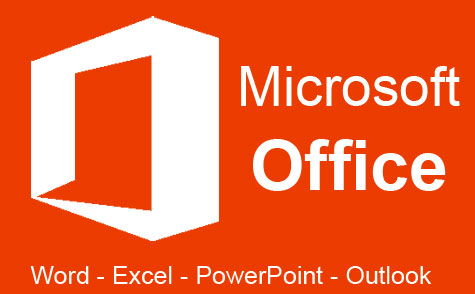 32 hours
3.2 CEUs
Microsoft Office: Word, Excel, PowerPoint and Outlook
+ More Info
32 hours
3.2 CEUs
Microsoft Office: Word, Excel, PowerPoint and Outlook
+ More Info
-
 20 hours
2.0 CEUs
Photoshop Elements 101
+ More Info
20 hours
2.0 CEUs
Photoshop Elements 101
+ More Info
-
 7 hours
0.7 CEUs
Google Slides
+ More Info
7 hours
0.7 CEUs
Google Slides
+ More Info
-
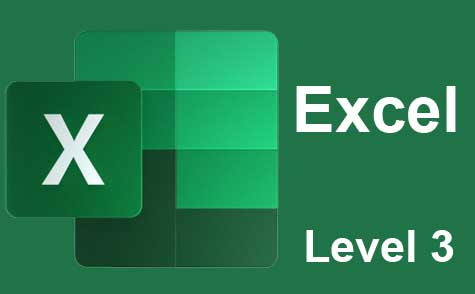 7 hours
0.7 CEUs
Microsoft Excel Level 3
+ More Info
7 hours
0.7 CEUs
Microsoft Excel Level 3
+ More Info
-
 14 hours
1.4 CEUs
QuickBooks 101
+ More Info
14 hours
1.4 CEUs
QuickBooks 101
+ More Info
-
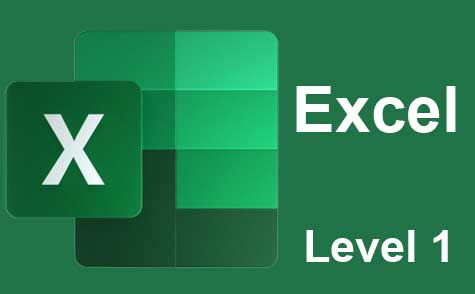 12 hours
1.2 CEUs
Microsoft Excel Level 1
+ More Info
12 hours
1.2 CEUs
Microsoft Excel Level 1
+ More Info
-
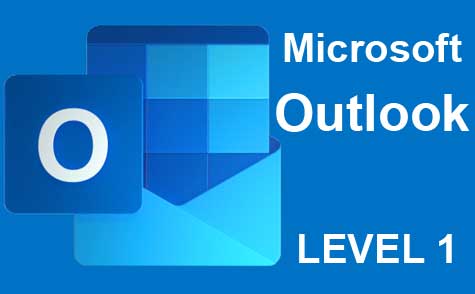 5 hours
0.5 CEUs
Microsoft Outlook Level 1
+ More Info
5 hours
0.5 CEUs
Microsoft Outlook Level 1
+ More Info
-
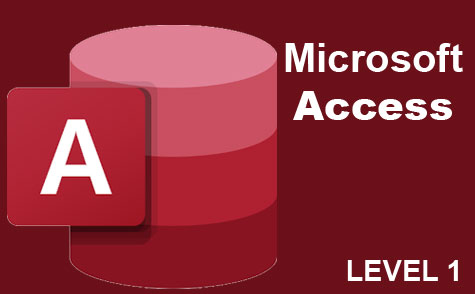 3 hours
0.3 CEUs
Microsoft Access Level 1
+ More Info
3 hours
0.3 CEUs
Microsoft Access Level 1
+ More Info
-
 14 hours
1.4 CEUs
QuickBooks Online
+ More Info
14 hours
1.4 CEUs
QuickBooks Online
+ More Info
-
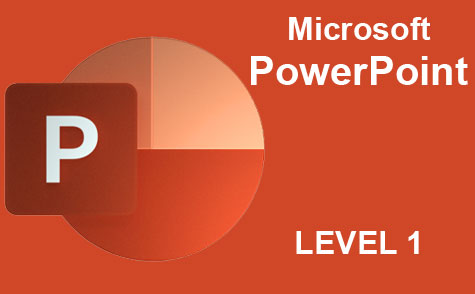 8 hours
0.8 CEUs
Microsoft PowerPoint Level 1
+ More Info
8 hours
0.8 CEUs
Microsoft PowerPoint Level 1
+ More Info
-
 6 hours
0.6 CEUs
Google Docs
+ More Info
6 hours
0.6 CEUs
Google Docs
+ More Info
-
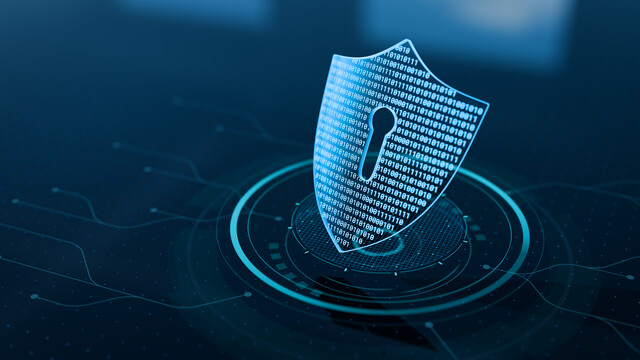 6 hours
0.6 CEUs
Cybersecurity 101
+ More Info
6 hours
0.6 CEUs
Cybersecurity 101
+ More Info
-
 7 hours
0.7 CEUs
Google Sheets
+ More Info
7 hours
0.7 CEUs
Google Sheets
+ More Info
-
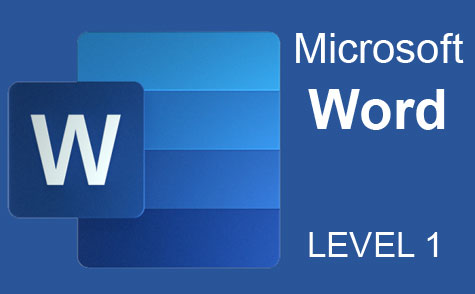 7 hours
0.7 CEUs
Microsoft Word Level 1
+ More Info
7 hours
0.7 CEUs
Microsoft Word Level 1
+ More Info
-
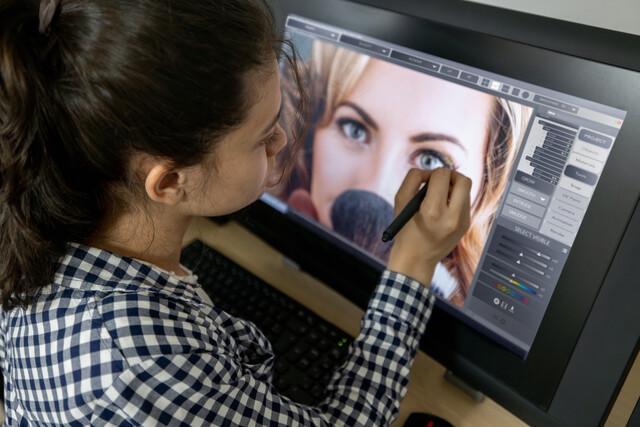 12 hours
1.2 CEUs
Adobe Photoshop
+ More Info
12 hours
1.2 CEUs
Adobe Photoshop
+ More Info
-
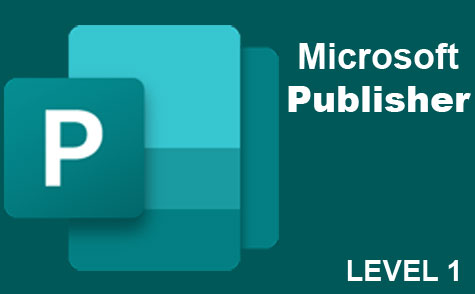 6 hours
0.6 CEUs
Microsoft Publisher Level 1
+ More Info
6 hours
0.6 CEUs
Microsoft Publisher Level 1
+ More Info





